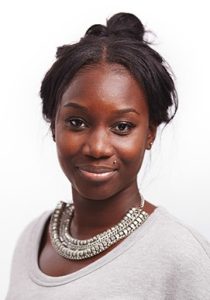Zulaikha Gordon
Inclusion Manager (SENCo) + Y5 Turquoise Class Teacher Fridays

View our Special Educational Needs (SEN) Information Report and Special Educational Needs and Disabilities (SEND) Policy
At St Mary’s CE Primary School we aim to provide a warm, happy, secure and caring environment in which all children can attain their full physical, intellectual and spiritual potential giving equal importance to their social and emotional development. We hope to achieve this through a rich, creative curriculum which caters for children’s individual talents and needs.
St Mary’s is a Primary School for children aged 3-11. We are a large school set on two sites. Our Church Lane site is home to the Lower Phase (Nursery, Reception, Years 1 and 2). Middle Phase (Years 3 and 4) and Upper Phase (Years 5 and 6) are based at our Rectory Gardens sites. We have approximately 470 children in our school.
Our most recent Ofsted Inspection took place in November 2022 in which we were judged as a good school.
This report aims to answer some of the most frequently asked questions about how we identify and meet the needs of our children.
If your question hasn’t been answered in this report please do not hesitate to contact our Inclusion Manager, Zulaikha Gordon. The school telephone number is 0208 340 4898.
The current version of this report was written in March 2025 and has been updated and reviewed annually to reflect any changes in policy. It will next be reviewed fully in March 2026.
St Mary’s is a mainstream school and welcomes children with SEND in one or more of the following areas:
We follow a graduated approach of assessing a child’s needs, planning and implementing support and reviewing the impact of the support.
At the beginning of the autumn term, before a child starts at our Nursery the staff carry out home visits. This is an opportunity for them to get to know the child before they start and to find out crucial information. During these visits we ask parents to let us know if their child has a disability, any additional needs or if they have concerns about their child’s development. This enables us to ensure that the right kind of provision and support is in place when they start Nursery.
Before starting in Reception all parents come in to school to meet with class staff and a similar discussion will take place. The Inclusion Manager aims to visit any children who did not attend our Nursery in their pre-school setting during the summer term.
Any parents of children who start at St Mary’s throughout the school year are met by the Inclusion Manager. All children have an induction period which includes initial assessments and observations within the first two weeks of them arriving in school. This often highlights any difficulties they have.
Throughout the year, class teachers meet regularly with the Inclusion Manager to discuss the children in their class and any concerns they have.
Our regular assessment and monitoring programme, including termly pupil progress reviews, highlights children who are not making expected progress, further investigations will be carried out in order to find out why. We use a range of screening checklists and programmes which give an indication of the difficulties children face. Some examples of the systems we use in school are:
At St Mary’s all children have access to high quality, personalised teaching every day. All children are taught together but the learning goals and outcomes will differ and will be targeted at the child’s own level. Class teachers ensure that the lessons are accessible to all children. We have a high number of Teaching Assistants who support class teachers to deliver quality first teaching. We also have a range of support strategies and interventions which we may use to help children who we have identified as having additional educational needs.
At the very early stages of assessment a discussion is held between parents/carers, class staff and the Inclusion Manager. During this meeting we will identify what the child’s area of need is as well as acknowledging the strengths they have. We will also agree on the programme of support. This may include:
More ways in which we help children with SEND are indicated on our Waves of Intervention pyramid below.
Part of the school’s budget is ring fenced, to be used to support pupils with special educational needs and disabilities. This money is used to buy screenings and assessment packages to help us to identify particular areas of needs, intervention programmes, fund extra adult support and buy in specialist advisors.
Decisions about which assessments, intervention programmes or type of support are best for a child are made by the Inclusion Manager in consultation with class staff, members of the Inclusion Team and parents/carers.
There may be occasions where we feel that we are not able to meet a child’s needs solely from our own funds and we will apply to the local authority for additional funding in order to help us meet their needs.
Delivering high quality teaching planned specifically to meet all children’s needs is the most important factor in ensuring that all children make progress.
Our monitoring cycle enables us to monitor the effectiveness of resources and provisions alongside the attainment and progress of the children. Monitoring is carried out by the Senior Leadership Team, Phase and Subject Leaders and the Inclusion Manager.
Some of strategies we use to evaluate the effectiveness of provision are:
Teachers monitor children’s progress regularly. Each term pupil progress reviews are held during which every child’s progress and attainment are looked at and discussed by class teachers and the leadership team. Where a child is not making adequate progress the reasons why are assessed. Where we feel that the slow progress is due to an additional educational need, further investigations are carried out. It may be decided that the child needs to be referred to an external service so that advice and recommendations can be given to the school. Meetings to update the parents take place as well as termly parent consultation meetings. All children will have an end of year progress report in the summer term.
Dedicated PLP and PSP review meetings are held at least termly where individual targets are evaluated and new targets set. These meetings are an opportunity for joint discussions about the child’s progress and their needs. They are usually attended by parents/carers, the class teacher, teaching assistant (if the child has one to one support), the child (where appropriate) and other professionals who may be working with the child. We value parental input during these meetings and try as far as possible to arrange them at a time that will allow them to attend. During the meetings we will discuss general attainment and progress, review specific targets and set new achievable goals and talk about the impact of any interventions or provision. This is often a chance to share our views on what is working well and what may need to be adjusted. A copy of the review notes and a new PLP/PSP/One Page Profile will be sent home a few days after the meeting.
Education Health Care Plans are reviewed annually. This is an opportunity to amend the EHCP if needed and to carefully assess the provision set out in the plan. Prior to the meeting the child, parent/carers, class staff and external services working with the child will all write a report about what is or isn’t working well and the child’s strengths and difficulties. During the meeting we will think about and set short term, medium-term and long-term goals. We feel it is very important that the pupil’s voice is captured during these meetings and where possible, they will attend for part of the meeting or give their contributions via a pre-recorded video or PowerPoint. All the information gathered is then sent to the Local Authority who updates and returns the EHCPs to all involved.
If parents are concerned about their child’s progress they are always welcome to make an appointment to discuss this with the Inclusion Manager.
At St Mary’s we believe strongly in keeping the pupils at the heart of everything we do. We aim to facilitate them to express their feelings and opinions about their education through:
Where a child has special educational needs, in addition to the opportunities listed above they will also be able to contribute their views through:
We believe that in order to fulfil their academic potential, children need to be physically and emotionally healthy. Therefore we have lots of resources in place to ensure, as far as possible, that they are happy and feel secure in school. Some of our interventions are:
Throughout the school, we use a behaviour incentive called ‘Good to be Green’. This is a clear system which encourages good behaviour through rewards and recognition when the children are doing the right thing and making correct choices. As this is used throughout the school, there is consistency in expectations and the children are clear about how they need to behave in school. This works for the majority of the children in our school. A small number of children may need extra strategies for behaviour and these may include:
As always there is a discussion with parents/carers before any of these strategies are introduced.
Any children who have medical needs have a care plan in place which is reviewed at least annually. Copies of the care plan are made available to any members of staff who have contact with the child.
Staff who work with children with specific medical needs e.g. epilepsy, diabetes, sickle cell anaemia etc. will have training either by the school nurse or a specialist nurse.
Our Medical Officer is Debbie Mallitte. She ensures that all care plans are up to date and that medication kept in school is within date. She passes on any key information to staff members. She can be contacted via the school office.
Any activities which take place in school or trips out of school are planned with all children in mind and we always include children with special educational needs and disabilities. Before the trip or activity takes place a risk assessment is done and we will look at all aspects of the activity or venue and ensure that it is accessible. Children who have dedicated support in school will also receive this support during school trips.
Parents are always consulted before a trip takes place and we may occasionally ask a child’s parent to come along as well.
Children who have difficulty with changes in routine will have prior input so they know what to expect on the day. This will include being shown photographs of the things they will see as well as a breakdown of the day.
We have a range of clubs which take place after school. We welcome all children to come to these. A list of all clubs and after school activities is available at both our Church Lane and Rectory Gardens offices.
Where we feel that our resources are not fully meeting a child’s or family’s needs, we may refer them to an external service. This is done as part of the Graduated Approach and will be done in agreement with parents/carers. The Inclusion Manager will usually make the referral, although some services can be accessed through a GP or directly by parents. Some external agencies will work directly with children and families and others will give the school recommendations and strategies for us to implement. A number of services will have a dedicated member of staff who is attached to our school, others services will be more general.
Other agencies are more general and include:
Our school is set on two sites within walking distance of each other. Both sites have had recent extensive refurbishments to make them fully accessible.
Nursery, Reception, Year 1 & 2 occupy a modern single-story building in Church Lane. Nursery is self-contained but very much part of the school and has its own outdoor area. The Reception classes have their own outdoor area within the main playground allowing us to offer a range of learning and play spaces that we can tailor to the children’s needs and interests. All classes on the Church Lane site have direct access to the playground. Each classroom has accessible toilets within the room. There are a number of disabled adult toilets.
Years 3, 4, 5 and 6 at based at Rectory Gardens. The school is a three storey building which dates date to 1961. It has two playgrounds areas including a football pitch and a nature area. It is situated just opposite Priory Park. The school now has a lift which enables all storeys to be fully accessible. There are a number of disabled toilets. More information about this can be found in our Accessibility Policy.
Each year we have five training days. These are designed to keep all staff up to date with new initiatives in education. Some of these have been based on Inclusion.
The Inclusion Manager attends SEND conferences and forums and imparts new information through phase and staff meetings. All staff had training on the Code of Practice and the Graduated Approach. In addition, all staff have recently received training on SLCN, Dyslexia and Bereavement & Trauma.
Teaching Assistants and SNAs have had training on the Graduated Approach, Managing Behaviour and running language intervention groups.
Other training that members of staff have had includes:
At St Mary’s we strive to maintain strong partnerships with parents/carers. Staff have close contact with parents/carers at the beginning and end of the day and are always willing to discuss queries and concerns. In addition we have three parent consultation meetings throughout the year to discuss progress as well as termly PLP/PSP review meetings.
Class assemblies are held in the spring and summer term. We encourage all parents/carers to come and see the wonderful things the children have been learning.
The Inclusion Manager is working to establish a regular drop in session for parents/carers of children with special educational needs. Please let her know if this is something you would be interested in.
We have a very active Parent School Association which works hard to develop a strong community as well as organising social events and fundraisers. A number of our parents are also on the Governing Body.
General information is passed on to parents/carers through newsletters, the school website and text alerts. We can also be found on Facebook and Twitter.
Information about local support is located here: www.haringey.gov.uk/local offer
The Parent Partnership Service, Markfield Together for Inclusion, offers a range of services to assist parents/carers of children with SEND. These include:
Email: enquiries@markfield.org.uk
Website: www.markfield.org.uk
We are always happy to discuss your concerns. Please do not hesitate to contact any of the following:
The school telephone number is 0208 340 4898
If you have a specific complaint about your child’s additional needs and/or the provision in school, please contact Zulaikha Gordon in the first instance. If you feel that your concern has not been sufficiently resolved, please contact either office who will guide you through the school Complaints Procedure.
A copy of our Complaints Procedure is available at both our school offices and on the school website.


